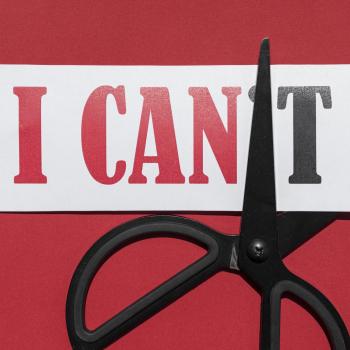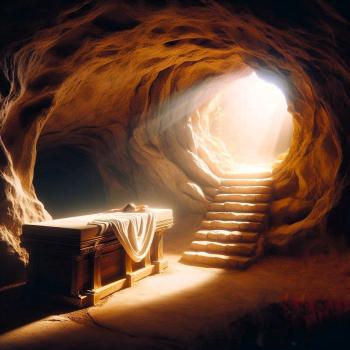Particularly if we learn what this occasion might teach us.
A marriage entered into this publicly, in such surroundings, and with dignitaries and celebrities in attendance in a thousand-year-old church where the notable and the royal are buried or memorialized, carries a force far beyond its already-significant entertainment value. In his video discussing the wedding, Williams sought, as he always seeks, the spiritual meaning of events, and he suggested that this moment could bear spiritual fruit for all of us.
Marriage, he observed, is always "an act of generous commitment" in which two people commit to put the other first, to love each other, to learn from each other. He noted that he was privileged to be the representative of the Church called to consecrate William and Kate's vows, and he sought to explain why this Wedding of the Century was a moment for spiritual reflection:
Here are young people sending a message of hopefulness, sending a message of generosity across the world. And it's my privilege to be able to bless that in the name of God, to witness it in the name of God, and to send them on their way.
The video, shot at Lambeth Palace, the traditional London residence of the Archbishops of Canterbury, is filled with the trappings and architecture we associate with the Church of England. The images are stately and lovely, and Williams in his archbishop's purple is a voice of reason and hope. In themselves, the simple combination of images and speech are a subtle argument for the Church. But in the words above, Williams also seemed to be arguing, without saying it directly, that the Church of England is at the heart of this international occasion—and that this is what the Church does, over and over, without any fanfare. It marks and blesses the significant moments of human life in the name of God, even for those who are not famous or wealthy, even for those who are alone, despised, exiled. The Church exists to recognize and to share the joy and grief of humankind, to sacralize it with ritual and prayer and presence. So this wedding is simply a star-studded reminder of what the Church does every single day.
There also seems to be a personal spiritual message we might glean from these nuptials. Rowan Williams argued that the very public nature of this wedding and of these lives—Prince William has lived his entire life in the public eye, and Kate has spent much of the last eight years being shadowed by paparazzi—could be for us a powerful reminder of the love and hope and courage that any of us require to enter into such a partnership:
William and Catherine are making this commitment very much in the public eye and they're sensible, realistic young people. They know what the cost of that might be. They've thought that through. And because of that they will need the support, the solidarity and the prayers of all those who are watching today. We have to be witnesses in an active sense: the kind of witnesses who really support what's going on. To be a witness is more than to be a spectator and I hope that'll be part of people's experience at the time of the wedding.
The wedding (like any wedding, of course) represents hope for the future, hope for human relationship and sacrificial love, and not just wish fulfillment for those looking on. Williams suggested instead that we are called to pray for and to support this relationship—and by extension, all such committed relationships. And, without doubt, witnessing this commitment being entered into should call us to reaffirm our own commitments to family, to spouses and partners, to friends, to all those we love.
If the lasting messages of the Royal Wedding are merely that a lot of wealthy and beautiful people got to do some cool things in London, or that a star-quality couple got hitched in ornate surroundings, or that his suit or her dress was really something, then it's really not worth the time and energy we have poured into it. What makes this a significant moment is that we have the chance to learn from—and help others understand—a sacred occasion.
With the whole world watching, with the Church presiding, Prince William and Kate Middleton will say their vows.
And we, watching and praying and thinking, should celebrate that.
And say our own.





